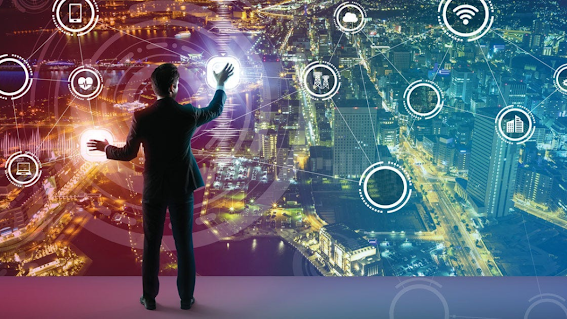The Role of IT Services in Redefining Retail Loyalty Programs
In today’s rapidly evolving retail landscape, businesses are constantly seeking innovative ways to engage customers and build lasting relationships. One such avenue that has gained significant prominence is the utilization of Information Technology (IT) services to redefine and enhance retail loyalty programs. These programs, once confined to simple punch cards or basic point systems, have evolved into sophisticated and personalized experiences, thanks to the integration of IT services. In this blog, we’ll explore the pivotal role that IT services play in reshaping retail loyalty programs.
Personalization at Scale
One of the most significant contributions of IT services to retail loyalty programs is the ability to offer personalized experiences at scale. With the help of data analytics, businesses can now gather and analyze vast amounts of customer data, enabling them to tailor loyalty programs to individual preferences. For instance, by tracking purchase history, online behavior, and demographic information, retailers can send targeted offers and recommendations to their customers. This level of personalization not only enhances the customer experience but also fosters a sense of connection and loyalty.
Seamless Omni-channel Integration
In today’s retail landscape, customers expect a seamless shopping experience across various channels, be it in-store, online, or through mobile apps. IT services have enabled retailers to integrate loyalty programs seamlessly across these channels. Customers can earn and redeem rewards regardless of how they shop, which enhances convenience and encourages repeat purchases. Moreover, this integration allows retailers to gather more comprehensive data on customer behavior, further refining their loyalty programs.
Enhanced User Experience
The user experience is paramount in driving customer loyalty. IT services have enabled retailers to develop user-friendly mobile apps and websites that make it easy for customers to engage with loyalty programs. Through intuitive interfaces and real-time updates, customers can track their rewards, receive personalized offers, and provide feedback effortlessly. This enhanced user experience not only strengthens customer loyalty but also attracts new customers to join these programs.
Data-Driven Decision Making
IT services have empowered retailers to make data-driven decisions when it comes to their loyalty programs. Through advanced analytics and reporting tools, businesses can measure the effectiveness of different loyalty initiatives, identify trends, and refine their strategies accordingly. This data-driven approach ensures that loyalty programs remain relevant and effective in meeting both customer needs and business objectives.
Cybersecurity and Trust
As loyalty programs increasingly rely on digital platforms, cybersecurity becomes a critical concern. IT services play a vital role in safeguarding customer data and maintaining trust. Retailers invest in robust cybersecurity measures to protect customer information, ensuring that loyalty program members feel secure and confident in participating.
Conclusion
The role of IT services in redefining retail loyalty programs cannot be overstated. Through personalization, seamless integration, enhanced user experiences, data-driven decision-making, and cybersecurity measures, businesses are not only retaining existing customers but also attracting new ones. As technology continues to advance, the potential for IT services to further enhance loyalty programs remains limitless. The retail industry is poised to continue its transformation, and those who harness the power of IT services to create exceptional loyalty experiences will undoubtedly thrive in this ever-changing landscape.
For more information, visit Superior Codelabs.
Shaikh Fakruddin is the Founder and CEO of Superior Codelabs.




Comments
Post a Comment